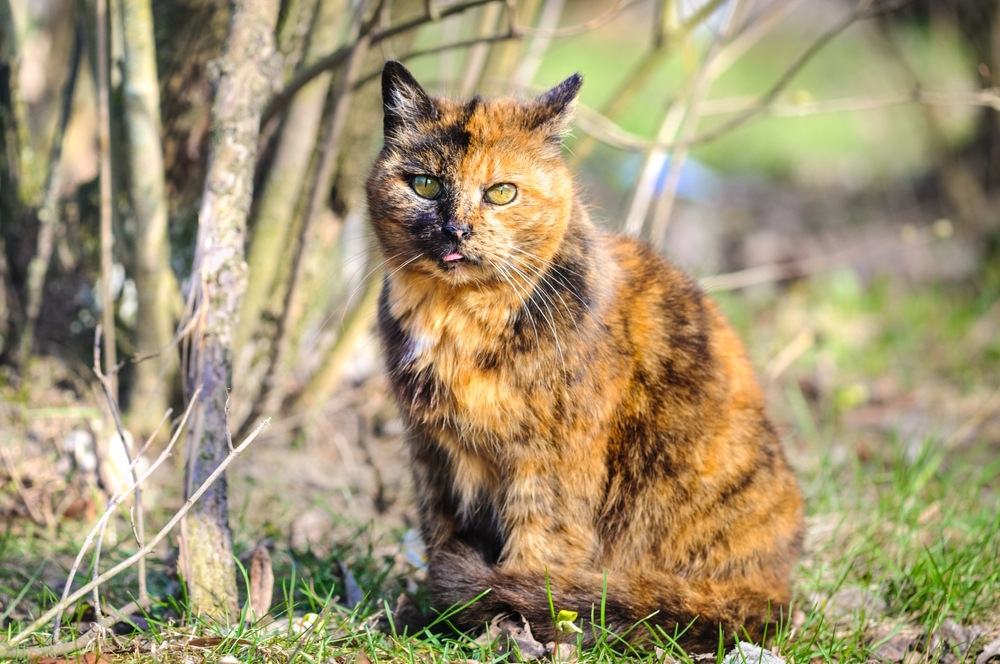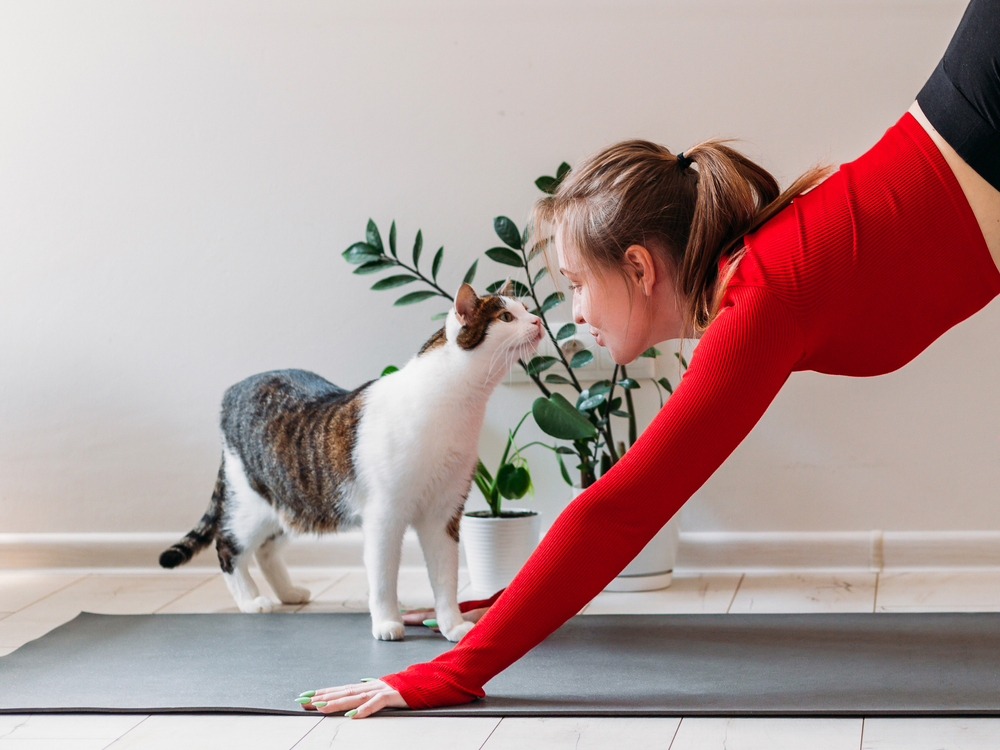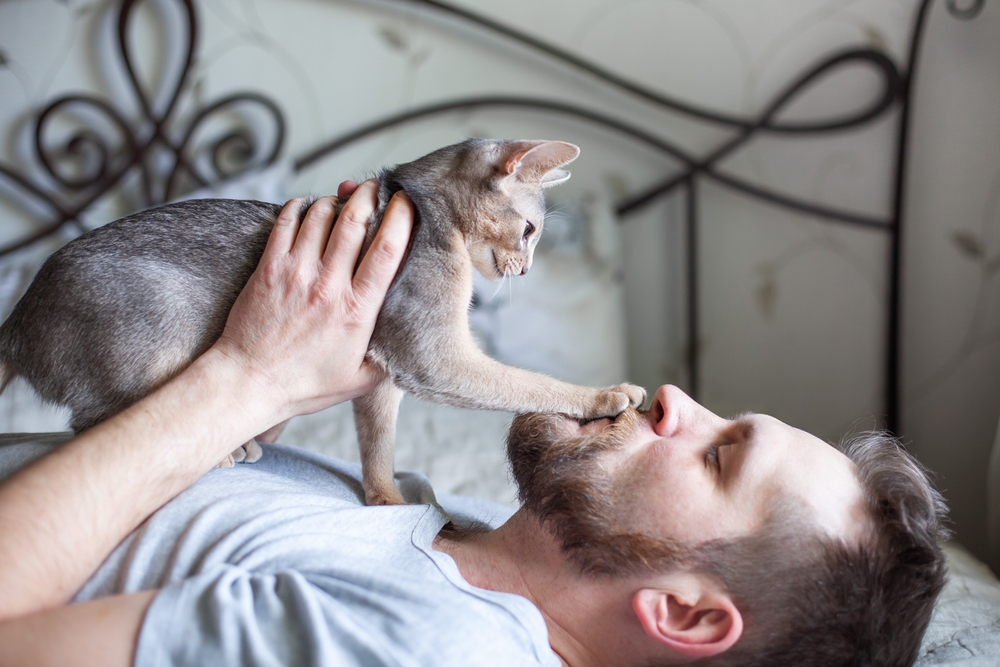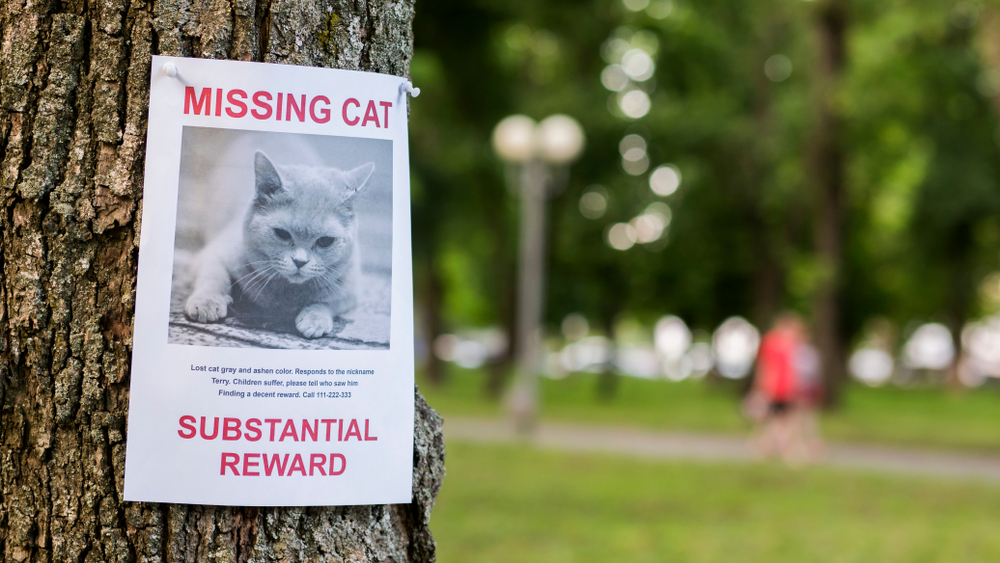Kittens are super cute, and many people go gaga for the tiny cats. Kittens are also an immense responsibility and a great worry, particularly since they tend to cry. A lot. They are sweet and adorable until they keep you up at night with their crying and meowing and you don’t know what’s wrong or how to help them.
Why do kittens cry? How do you know when something isn’t right? Is there any way to stop them from crying? Kittens can cry for a number of different reasons, and all kittens cry from time to time. There are things you need to do in order to meet your kitten’s needs so that they stop crying, but in some cases, your kitten will need to see the vet.
Here are eight possible reasons why kittens may cry and how to attend to their needs, as well as when to contact the vet.
This guide is not a replacement for veterinary advice, so please consult your vet if your kitten is crying or meowing more than usual or they are not well in any way. Their condition can worsen quickly, and getting them seen by a vet promptly is of utmost importance. For the purpose of this article, we have not specified the age of the kitten, but generally, we have tried to cover most common reasons for kittens crying, from a newborn up to several months of age.
The 8 Reasons Why Do Kittens Cry
1. The Kitten Is Hungry
One of the most common reasons that kittens cry is because they are hungry. Kittens need to eat as much as six to eight times per day, depending on their age. Kittens cry to alert their mom that they need food so that they can get fed. If you are feeding your own kitten and find that your kitten is crying a lot, you need to try feeding them more often by increasing the number of their meals.
If your kitten stops crying and gets interested in food when you go to feed them, they might just be hungry. If they do not want to eat or are crying during or after feeding, this may indicate an underlying health issue, that they aren’t getting enough food, or that the food is not suitable, and they should be promptly checked by a veterinarian.
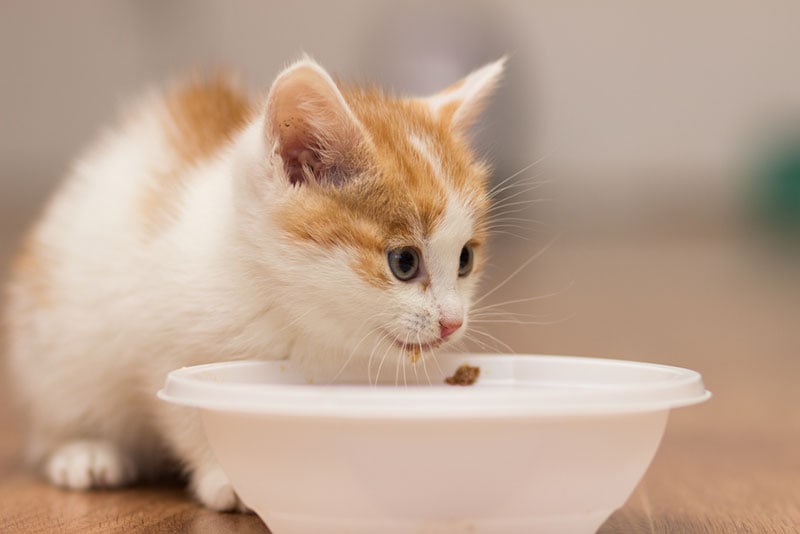
2. The Kitten Is Cold
Kittens can easily get cold. Unlike adult cats, kittens cannot regulate their body temperature during the first 4-5 weeks of life. This can lead to your kitten feeling cold, which can cause them to cry, or in the case of very young kittens, to become very weak and lethargic, barely moving and feeling cold to touch.
If you suspect your kitten might be cold, you can try bundling them up in a blanket or raising the thermostat to a higher temperature. This problem can be more pronounced in the winter months. In the first weeks of life, kittens need a nest box temperature of around 80-85°F. After 4 weeks of age, this can be reduced to 70-75°F going forward.
3. The Kitten Is Lonely
Kittens can get lonely. Many kittens are used to being around their mothers and usually other kittens. A young kitten does not like to be alone, as that is unfamiliar. When a kitten starts crying, they could be looking for attention or calling out to their mother or littermates. This may be more pronounced soon after weaning and when kittens are adopted to their new homes after 8 weeks of age. Spending time with the kitten, petting them, and sitting nearby could be enough to ease their loneliness and get them to stop crying.
However, be mindful not to consistently teach them to seek your attention by crying, as this may form a positive association, and they may cry every time they expect something. Certainly in the first days of them becoming a member of your family, when everything is new and scary, they will need a lot of reassurance and company. Keep them busy with games, puzzles, treats, and toys, so they will tire out more easily and be more settled. Reward their calm and confident behavior with attention and treats, and they should settle in fairly quickly.
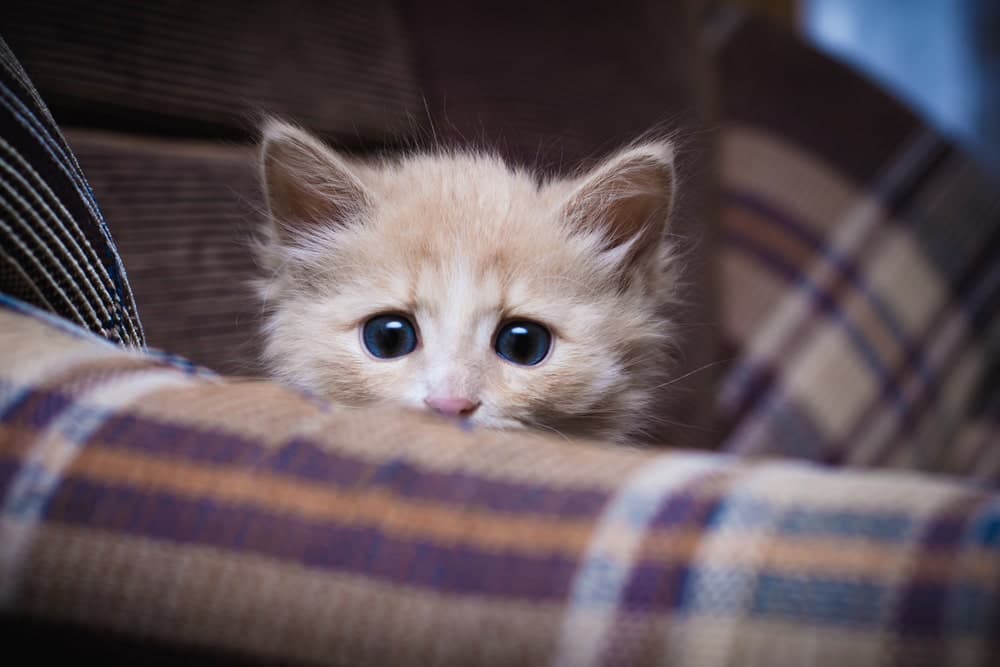
4. The Kitten Is Confused or Lost
Being a baby can be confusing and frustrating. Kittens are born blind and deaf, and it takes time for their senses to come into focus. Very young kittens can get confused or even lost if they venture away from their nesting box, and that can lead to crying.
If you have just adopted your kitten, keep them in a crate or a small room to begin with, so they can gradually explore the rest of the house. If they are out and about in the first few days, they can easily get lost and hide under various pieces of furniture, not knowing how to find their way back. If you suspect that your kitten could be confused or lost, try resetting them by bringing them to a familiar location and feeding them. You can even coax them with toys and treats, so they can learn the way themselves, unless they are too small or have ventured too far away from their safe place.
5. The Kitten Is Stressed
A kitten might cry if they are stressed out. A kitten can feel stressed or anxious from any combination of factors. A kitten might be anxious about being away from their mother. They could be cold or missing their litter mates.
One of the best ways to reduce a kitten’s stress is to fill their immediate needs, distract them, and spend time with them. Bundle your kitten up, pet them, play with them, and redirect their attention to something else, like food and toys. Meeting your kitten’s basic needs and providing a comfortable and safe environment will go a long way in reducing stress and potential crying.
6. The Kitten Could Be Sick
No one wants to imagine that their precious kitten could be sick, but it is a real possibility. Your kitten might be crying because of illness. This is more likely if you notice your kitten is still crying even after all their immediate primary needs have been met. You might also notice that your kitten’s cries seem weak or sound different than before. They could be weak and lethargic, not wanting to play or move much, or they may have more specific signs of illness, such as vomiting, diarrhea, eye discharge, a runny nose, sneezing, or lack of appetite.
If you believe your kitten is sick or they are exhibiting any of the above signs or generally seem lethargic, you should bring them to the vet right away for diagnosis and to get treatment started.
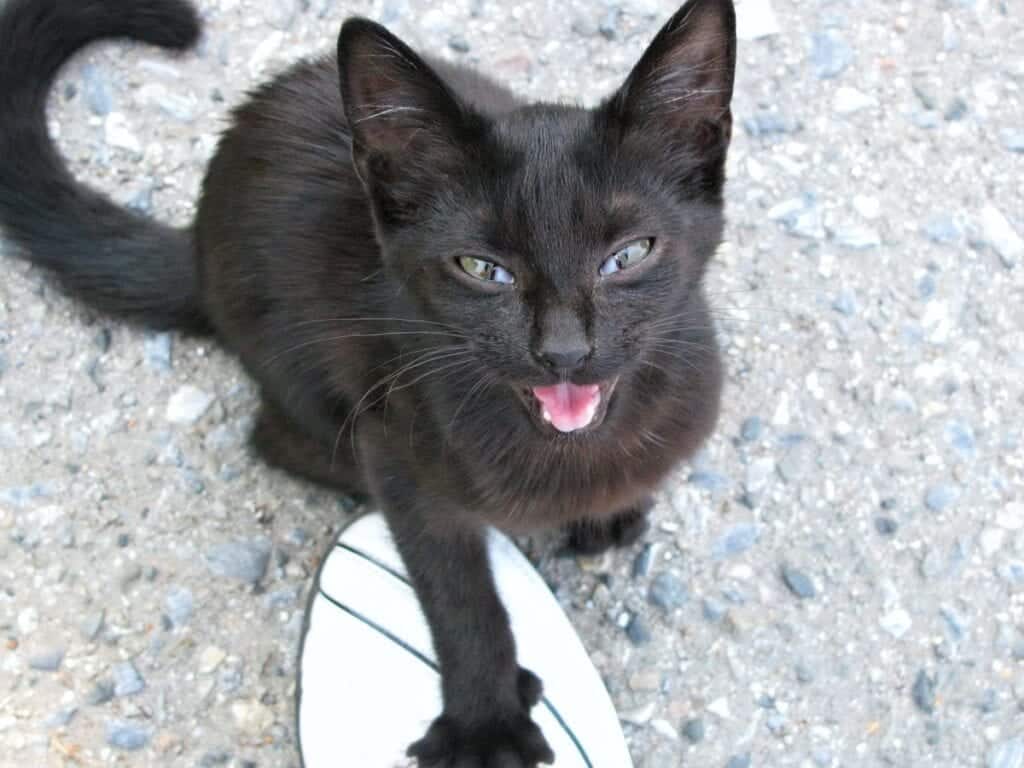
7. The Kitten Might Be in Pain
Another thing that could cause your kitten to cry is pain. A kitten can hurt themselves or become injured. Kittens can be clumsy, and they do not know their own boundaries and the boundaries of their environments. They could get injured through encounters with other pets in the house, children, or people by unintentionally being stepped on or pushed.
If your kitten is in pain, it can cause them to cry for longer periods of time even when the rest of their needs seem to be met. Look for signs of pain, such as limping, holding a paw up, hunched posture, wobbliness or lack of coordination, the inability to move, skin wounds, or licking a specific area over and over again. If you believe your kitten has been injured or is in any pain, you should get them to the veterinarian urgently.
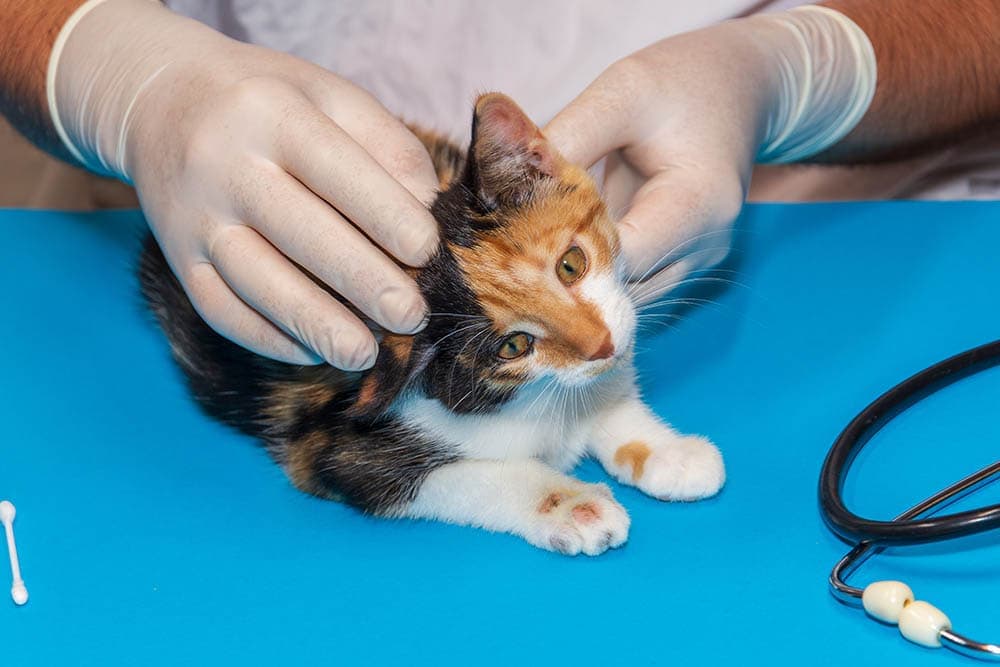
8. The Kitten Needs to Use the Bathroom
Like human babies, kittens need time to learn how to use the bathroom and become litter box trained. Sometimes a kitten will cry when they need to go to the bathroom, but this is not very common. You can try to gently put your kitten into a litter box to see if they will relieve themselves and stop crying, but very young kittens under 4 weeks of age will need help to use the bathroom by gently stimulating their genital area before and after each meal.
However, if your kitten is crying each time they try to use the bathroom, either to urinate or defecate, or if they are straining, having diarrhea, having very hard stools, are in painful with distended abdomen, or having any issues passing urine, they need to be checked out by the vet immediately.
Do All Kittens Cry?
Yes. Some kittens cry more than others. Crying is really just kittens meowing and trying to get attention for whatever need they have that hasn’t been fulfilled, or as a way to say something is wrong. Very young kittens cry more than older kittens. But all kittens do cry.
Trying to identify and meet your kitten’s needs will reduce crying to a minimum, but if you are looking for a way to stop your kitten from crying completely, you are out of luck. Just like human babies, baby cats are more likely to cry when they are young. Most importantly, learn to observe your kitten’s behavior, so you can distinguish the meowing they do as attention-seeking behavior versus any meowing or crying that may indicate pain, fear, and illness.
As they age, the crying will generally become less consistent and less prominent until it reduces significantly. Still, each kitten will have their own way to ask for your attention and food, and they will develop a specific bond with their cat parents based on their initial few months. Some cats may remain more vocal throughout their life.
Unfortunately, some kittens will cry for no apparent reason, and they should get checked out by your vet. If there is no underlying medical cause, this behavior should reduce as your kitten ages, especially if you are ensuring not to actively reward such behavior with attention, while still ensuring all of their needs are fulfilled.
Conclusion
Kittens cry for a variety of reasons. Sometimes they are simply hungry, lost, confused, scared, or they can be in pain or sick. The best way to get a kitten to stop crying is to identify the cause and seek immediate veterinary attention if they are unwell or hurt. If there is no underlying medical reason for the crying, fulfilling their basic needs, such as feeding, toilet habits, playing, safety, reassurance, and company, should reduce their crying.
- Related read: Do Kitten Personalities Change?
Featured Image Credit: Linn Currie, Shutterstock






